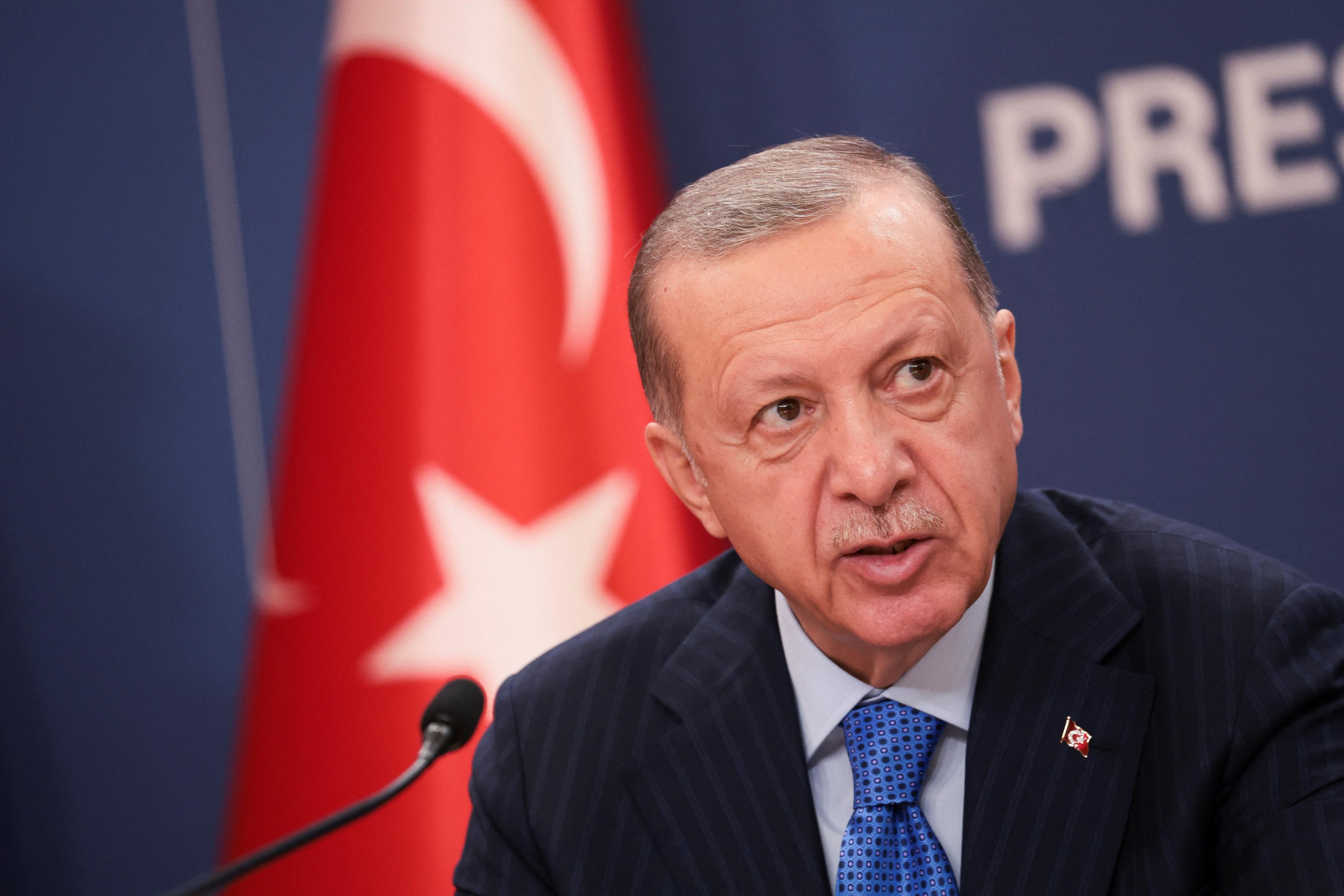ATHENS (Reuters) – Greece has sent letters to NATO and the United Nations, complaining over what it called “inflammatory” statements by Turkish President Tayyip Erdogan and asking them to condemn Ankara’s behaviour, diplomatic sources said on Wednesday.
The two countries – North Atlantic Treaty Organization (NATO) allies but historic foes – have been at odds for decades over a range of issues including where their continental shelves start and end, overflights in the Aegean Sea, and divided Cyprus.
On Monday, the European Union voiced concern over statements by Erdogan accusing Greece, an EU member, of occupying demilitarised islands in the Aegean and saying Turkey was ready to “do what is necessary” when the time came.
According to Turkey’s state-owned Anadolu news agency, Ankara sent letters this week to the European Union, NATO and the United Nations explaining its stance and views on issues including overlapping claims on airspace, territorial waters and the demilitarisation status of the Aegean islands, among other issues.
Greek diplomatic sources said on Wednesday Turkey’s letter distorted reality and its arguments were unfounded and violate international law. Greece, they said, has also sent letters to the United Nations and NATO.
“The Turkish attitude is a destabilising factor for NATO’s unity and cohesion, weaking the southern flank of the Alliance at a moment of crisis,” Greek foreign minister Nikos Dendias said in a letter to NATO Secretary-General Jens Stoltenberg.
Reporting by Renee Maltezou; Additional reporting by Ezgi Erkoyun, Editing by Angus MacSwan
Our Standards: The Thomson Reuters Trust Principles




